 ... 5, 7, 9, 11, 13, 15, &c. is an ascending series. ( 15, 13, 11, 9, 7, 5, 3, &c. is a descending series. The numbers which form the series are called the terms of the series. ... 5, 7, 9, 11, 13, 15, &c. is an ascending series. ( 15, 13, 11, 9, 7, 5, 3, &c. is a descending series. The numbers which form the series are called the terms of the series.  The North American Arithmetic: Part Third, for Advanced Scholars - Page 184by Frederick Emerson - 1835 - 288 pagesFull view The North American Arithmetic: Part Third, for Advanced Scholars - Page 184by Frederick Emerson - 1835 - 288 pagesFull view - About this book
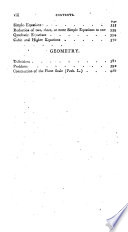 | Mathematics - 1801 - 446 pages
...numbers increase they form an ascending series ; but when they decrease, they form a descending series. The numbers, which form the series, are called the terms of the progression. Any three of ehe fivt following terms being giveif, the Other two may be readily found.... | |
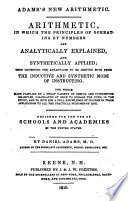 | Daniel Adams - Arithmetic - 1810 - 190 pages
...serios. -•n, t 3, "3, 7, 9. 11,13, 15, &c. is an owiinrft -hUSi U3. 13, II ,9. 7, 3, 3,4c. bz dtxcendi The numbers which form the series are called the terms of the series. The Jtrst and latt terms aru tlie extremes, and the oilier terms are called the meana. There are five things... | |
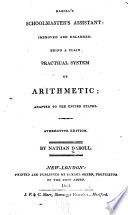 | Nathan Daboll - Arithmetic - 1815 - 250 pages
...&c. is an ascending arithmetical series : r ^ 8, 6, 4, 2, &c. is a descending arithmetical series : The. numbers which form the series, are called the •terms of the progression ; the first and last terms of which are culled the extremes.* PROBLEM I. The first term,... | |
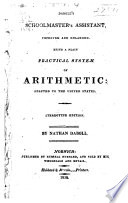 | Nathan Daboll - Arithmetic - 1818 - 246 pages
...&c. is an ascending arithmetical series : ,, ( 8, 6, 4, 2, &c. is a descending arithmetical series * The numbers which form the series, are called the terms of the progression ; the first and last terms of whicU are called the extremes.* PROBLEM I. The first term,... | |
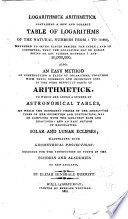 | Arithmetic - 1818 - 264 pages
...PROGRESSION. Thus J-lSilS.u? Ascending series. 14.12.10.8.6 &C. ? n 7. 6. 5.4.3 Sec. $ pesoiding series. The numbers which form the series, are called the TERMS of the progression ; the first and last terms of which are called the EXTREMES. Any three of the five following... | |
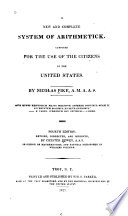 | Nicolas Pike - Arithmetic - 1822 - 562 pages
...and increased every dr.y's trsi ci £ ni.';« ; How far did he travel ? 29X -'J:=341 miles, Ans. \ The numbers which form the series, are called the terms of the progression. ,V(»/e. The first and last terms of a progression are called the extremes, and the other... | |
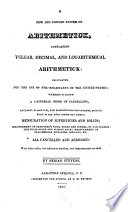 | Beriah Stevens - Arithmetic - 1822 - 436 pages
...the second decreasing (or descending) by the continual subtraction of seven ; and so of a ny other. The numbers which form the series are called the terms of the progression. NOTE. — The first and last terms of a progression are called the extremes, and the other... | |
 | Daniel Adams - Arithmetic - 1848 - 322 pages
...Progression. The first of the above examples is called an ascending, the second a descending series. NOTE 1 . — The numbers which form the series are called...the terms of the series. The first and last terms are the extremes, and the other terms are called the means. There are five things in an arithmetical... | |
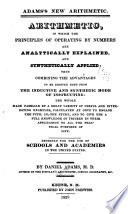 | Daniel Adams - Arithmetic - 1828 - 286 pages
...7, 9, 11, 13, 15, &c. is an ascending series. ( 15, 13, 11, 9, 7, 5, 3, &c. is a descending series. The numbers which form the series are called the terms of the series. The first and last terms are the extremes, and the other terms are called the means. There are five things in arithmetical progression,... | |
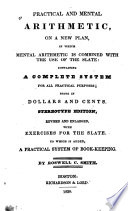 | Roswell Chamberlain Smith - Arithmetic - 1829 - 284 pages
...descending arithmetical aeries, because it ù formed by a continual subtraction of the common difference, 2. The numbers which form the series are called the terms of the series or pro• greasion. The first and last terms are called the extremes^ and the other terms the means.... | |
| |